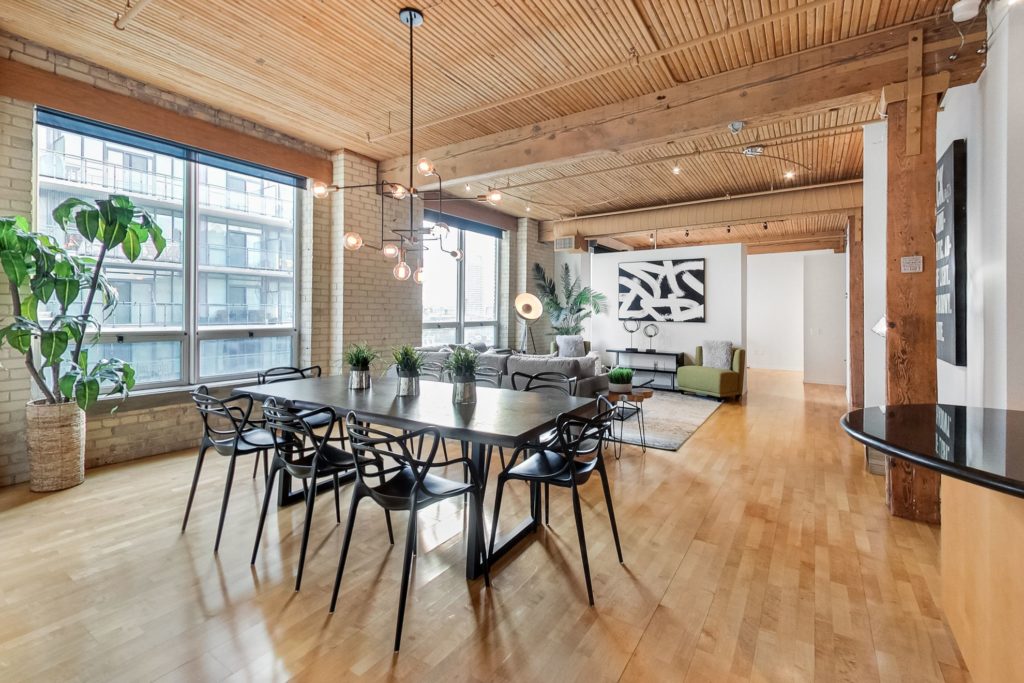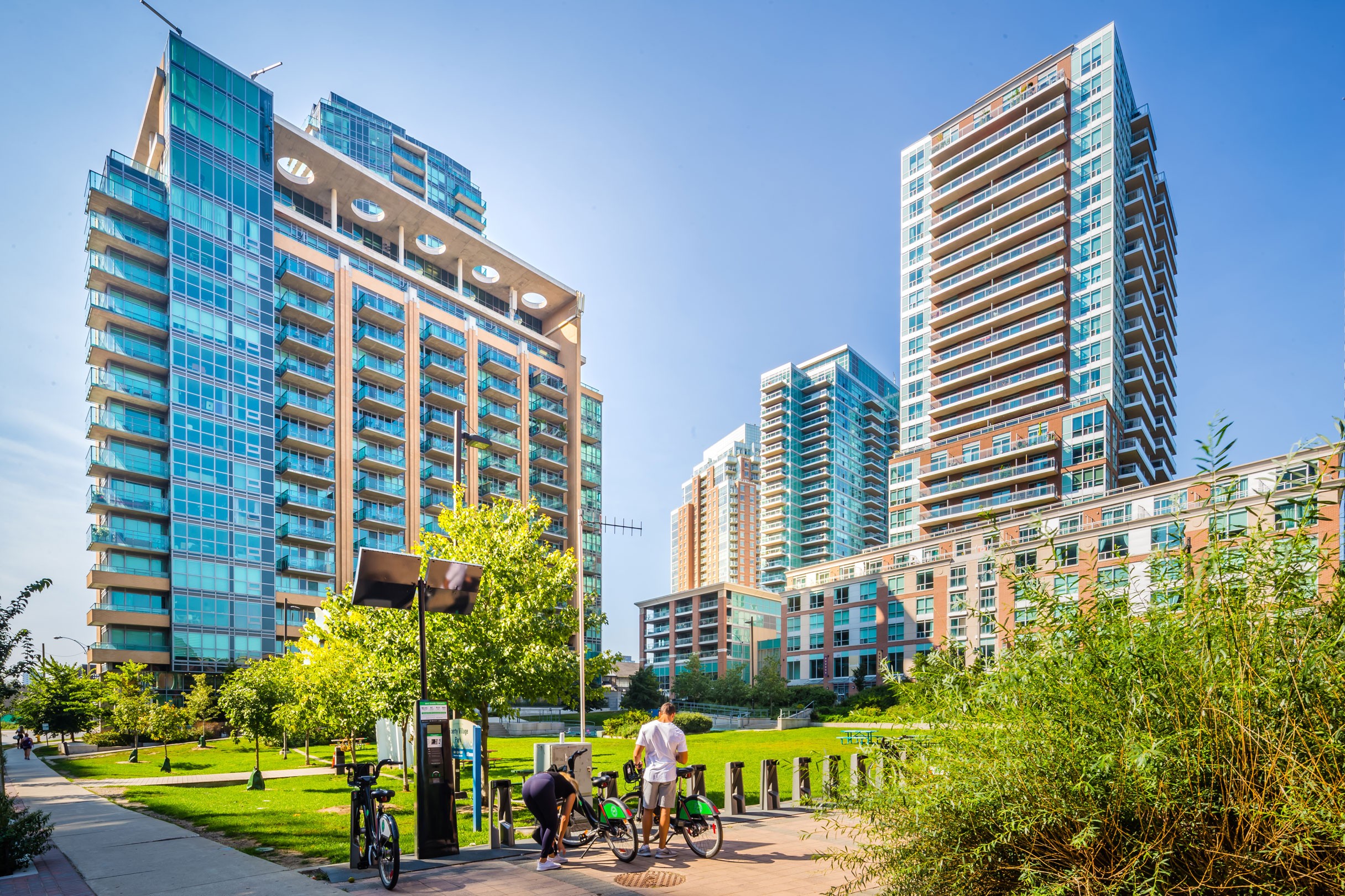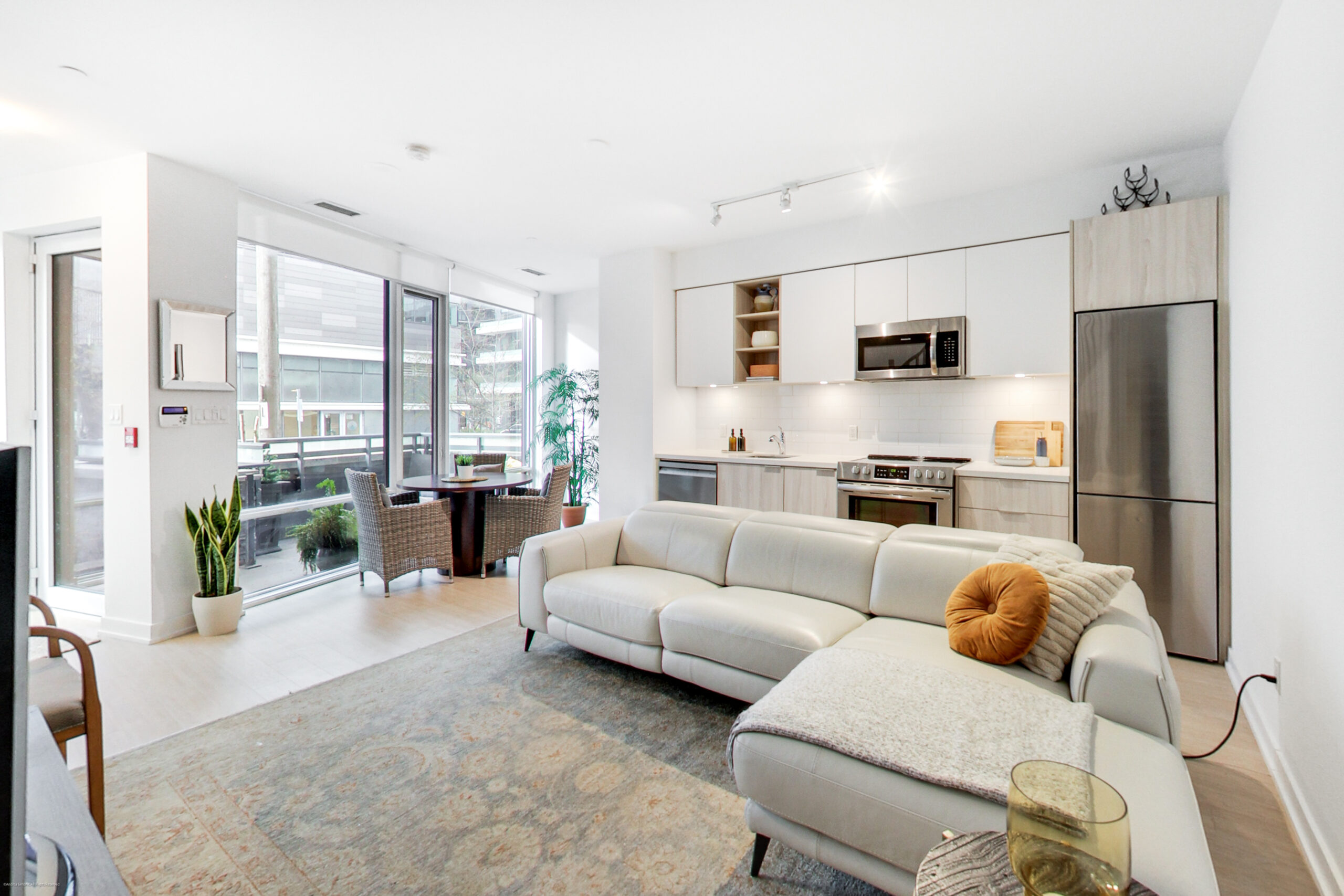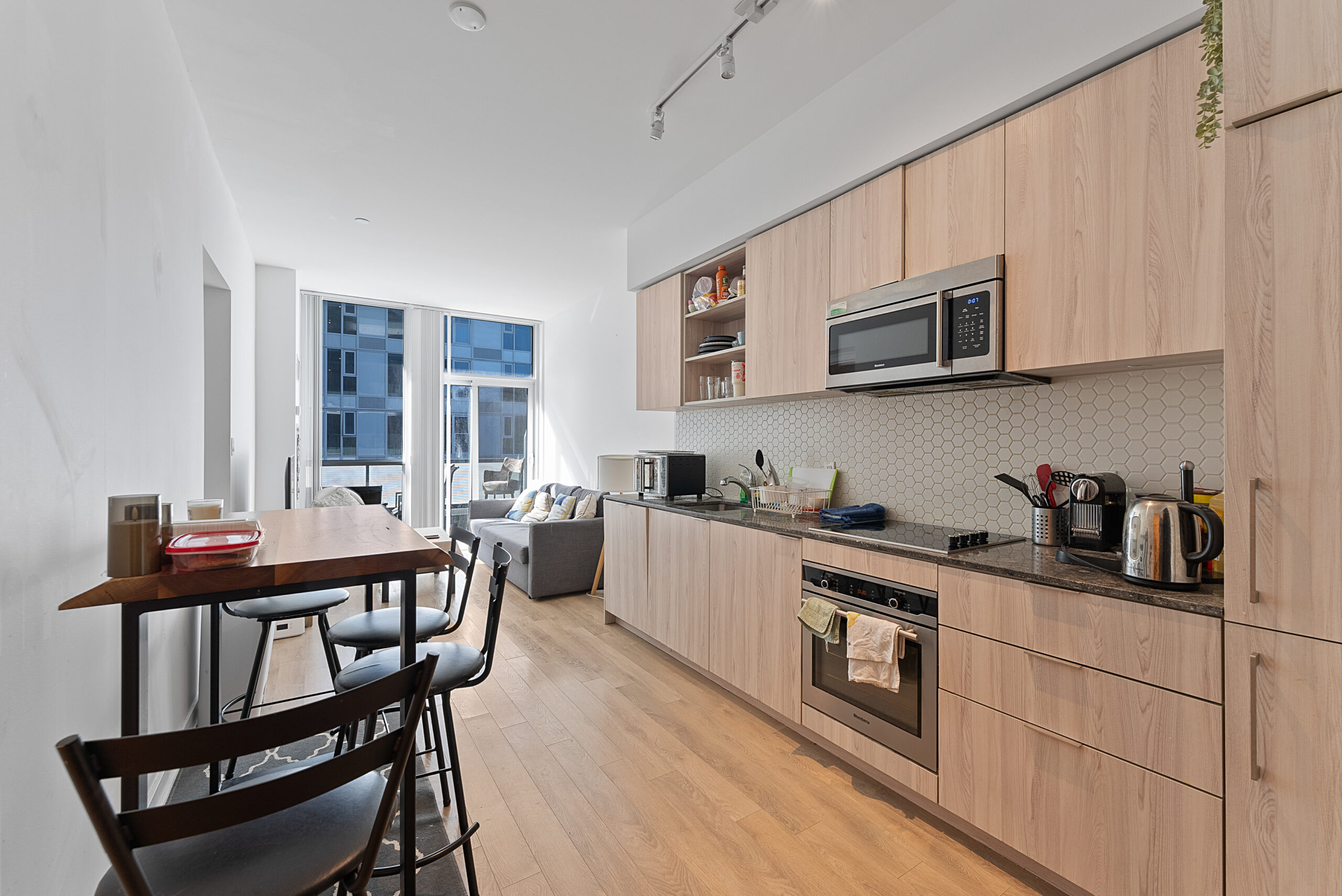
The time has come. You are sick of flushing your hard-earned money on rent. Paying for someone else’s mortgage. Not building equity. Done. You are ready to buy your very first condo. What’s next? How do you start? You start right here my friend. We’ve put all the info you need right here in one place. If you have questions, even after reading our detailed First-Time Buyer’s Condo Guide we invite you to contact us at [email protected] any time.
Planning Ahead For The Buying Process
Step 1: How Much Can You Really Afford?
Add up the true cost of your future condo and how much you are willing to spend. Before diving into the buying process, make sure you’re aware of other condo fees such as ongoing maintenance costs, mortgage interests, property taxes, and home insurance. Depending on how much you’re willing to spend on your condo, you would also need to figure out how much downpayment you’re willing to contribute. The minimum downpayment allowed in Toronto is 5% on the first $500,000 and any more after that is 10% on any amount over %500,000. Start saving and planning ahead for your finances so you can secure that condo you’ve been thinking of!
To learn more about down payments and how they work, click here for more info.
Step 2: Thinking Ahead
Purchasing your first condo is probably one of the biggest decisions you’ll make in a lifetime. Will the condo you have in mind work for you in the next 5 years or so? Are you thinking about living there permanently or renting it out? If you’re thinking about owning a pet, consider the condominium’s policies on pets restrictions. Will there also be loud construction noises and affecting your view after buying? Carefully decide which location, layout, and fixtures you prefer before jumping into the buying process.
Step 3: Saving For Your Condo
In order to buy a condo means preparing for a down payment and any upfront costs! The best way to start saving is by setting up a savings account from your bank. Consider these options!
- RRSP. The Canadian Government’s Home Buyer’s Plan (HBP) allows first-time condo buyers to borrow up to $25,000 for a downpayment tax-free from their RRSP. If you’re purchasing a condo with a second purchaser (and they’re a first-time condo buyer as well), a combined $50,000 can be used as part of the downpayment.
- TFSA. The benefits of this savings account are that it’s tax-free on any contributions, interest earned, dividends or capital gains. TFSA also allows you to invest and withdraw money tax-free and is available for individuals 18 years and older.
- Other savings and investment options.
- Consider either low-risk or high-risk mutual funds which will allow you to benefit from potential growth in the long run.
- Short-term GICs. You can deposit money for a set period of 30 days up to a year while enjoying a guaranteed rate of interest and a protected principal. The account is ideal if you need to park your money for a short amount of time.
Interested in knowing how long it will take you to save up for your downpayment?
Step 4: Choosing The Right Realtor
Choosing your real estate agent is crucial to the successful purchase of your condo. We recommend finding a realtor who specializes in your desired neighbourhood and one that’s knowledgeable to safely guide you throughout the process. The benefits of hiring a realtor are that they will take you to view properties, make an offer, secure a loan, complete paperwork, a reference for other valuable services, and answer any questions you may have.
Step 5: Preparing Finances & Choosing Your Mortgage
- Credit score. We recommend ordering a copy of your credit report before shopping for your first mortgage. Having a good credit score is important as your future lender will look at your credit history to decide if they want to approve you for a mortgage. For details on how to claim your free credit report.
- Do your research and find out which mortgage works for you. Depending on your preference, there are different mortgages with either fixed interest rates or variable interest rates. You can also decide on the term of the mortgage or how often you like to make payments. Learn different types of mortgages here.
The Buying Process
Step 1: Getting Your First Mortgage Pre-Approved
In order to secure a condo, you’ll need to have a pre-approved mortgage and find out how much your bank is willing to lend you. You can choose your mortgage product from either mortgage lenders (often banks) or mortgage brokers.
- Mortgage lenders. Ensure you explore different types of mortgage lenders available including banks and credit unions. Rates and mortgage products can vary quite dramatically from one lender to the next.
- Mortgage brokers. Their job is to recommend mortgage lenders with different types of mortgages for you to choose from. They can usually simplify the shopping process and give you access to a variety of products.
A mortgage pre-approval allows you to find out the maximum amount of mortgage you qualify for, as well as the interest rate for that product at that given time. The maximum amount of mortgage you’ll qualify for depends on a number of factors but can include income, credit-rating, downpayment, debt load etc.
You’ll need an official credit report as part of your pre-approval process. Remember, a lender can refuse to approve your mortgage if your credit score is too low but there are alternative mortgage options for people with low credit scores (i.e. private lenders).
Now it’s time to prepare documents for the pre-approval.
- Identification
- Proof of employment. You’ll need to provide up-to-date pay stub or a letter from your employer. If you’re self-employed, you’ll need at least two years of ongoing income and a Notices of Assessment from the CRA to get your mortgage pre-approved.
- Tax Returns
- Mortgage lenders want to see 1-2 years’ worth of tax returns (N1’s and NOA’s) to make sure your income is consistent with your reported earnings.
- Bank statements/other assets
- Lenders will need to look at your bank statements and other assets including insurance and life insurance. They do this to ensure your downpayment has been in your account for months and did not just show up overnight. Some mortgage products do allow for cash gifts from others for this purpose.
- Credit history
- Obtain a credit report because lenders will look at your credit score. In many cases they can run the report for you.
- Any other disclosure of debts and financial obligations
- i.e bankruptcy or loan
Click here on how to get your mortgage pre-approved.
Step 2: Tax Credit and First-Time Buyer Incentives
First-time buyers receive tax returns so be sure to take advantage of The Home Buyers’ Amount. You’ll receive the tax-return after you purchased your condo and submitted the application. Eligible individuals may receive up to $5,000. For more info to see if you qualify.
The First Time Home Buyer Incentive is a government-run program that helps to lower your monthly mortgage payments and a shared equity mortgage. The program allows you to borrow 5-10% of the purchase price of your condo, and you pay back the same percentage of the value of your condo when you sell in the long-term. For example, if you receive 5% of the incentive from a purchase price of $500,000, which is $25,000. If the condo’s value goes up to $650,000 within the next 25 years or so, your payback would still be 5% which is $32,500. To learn more or see if you qualify, click here.
If you plan to relocate elsewhere for either work or to operate your own business, you’re eligible to deduct moving expenses. For more info.
Step 3: Selecting The Right Team
The buying process is stressful, but it doesn’t have to be. The best way to solve your problems is to hire a STRONG team that will support you throughout the process.
- Hire a qualified real estate agent.
- Do your research and look for realtors who are knowledgable and have expertise in your field of interest. It’s generally recommended to work with an agent who specializes in the areas you are focussing on. They will have a better grasp of the local market and proven strategies for success.
- Google reviews are credible and invaluable when it comes to a third-party perspective.
- Request references. Ask your potential real estate agent to provide references from the past condos they helped purchase.
- Go with your intuition. Pick a realtor that you like, trust and feel comfortable with.
- Pick a lender: the best way to pick a lender is through your bank or a mortgage broker.
- A real estate lawyer. Do your research and be sure to check out their online presence and reviews, and ensure their main focus is in real estate. In many cases a realtor will be able to make some recommendations for good real estate lawyers.
Step 4: Condo-Hunting
Your mortgage has been pre-approved. Congratulations! It’s time to sit down with your real estate agent and share your preferences, needs, wants and must-haves. It’s their job to match those things with your budget.
It’s now time to start keeping an eye out for listings that interest you! Your realtor will help you find listings that match your criteria. You can ask them to set you up with suitable Prospect Matches via MLS. You also have the option to scan available listings using good websites or even Realtor.ca. The best website to look for listings is Realtor.ca – a compilation of nationwide listings and Mulitple Listing Service (MLS).
Step 5: Making An Offer
After you’ve had an opportunity to view some properties you very-well may have found one you like. It’s time to make an offer. Your real estate agent will help you draft an offer that will contain elements like price, closing date, deposit amount and any conditions to be met prior to firming up the purchase. Your agent will submit your offer to the listing/seller agent in the form of Agreement of Purchase and Sale.
After submitting the offer, the seller has the option to decline the offer, make a counteroffer or accept the offer. If the seller counters the offer, you can either accept, counter again or decline until the needs of both parties are met.
Step 6: Conditions & Deposit
Assuming the offer you submitted was accepted with conditions, you will need to meet the conditions by the deadline in order for the sale to go through. Once the conditions are all met, the binding deal will be firm. Of course, you can always have an accepted firm offer without any conditions, a firm offer will likely increase the chances of your offer being accepted. Common conditions include financing (time given to receive a full approval from your lender), a status certificate review (you may want a lawyer to review the documents provided by the condo corporation to ensure finances are in good shape) or home inspection.
The deposit can be any amount the buyer chooses but a good rule-of-thumb is generally about 5% of the purchase price and shows good faith to the seller that you have cash on hand and are serious. The deposit will make up part of your downpayment and, upon acceptance, will be held in the listing brokerage’s trust account until closing. Your agent will give you the name of the brokerage to get the bank draft made out to prior to preparing the offer.
Step 7: Other Condo-Buying/Closing Costs
In addition to your downpayment, purchasing your first condo will include fees that you may or may not be aware of but it’s best to plan and save ahead to eliminate any unforeseen costs (and stresses). The following are closing costs to be aware of:
- Legal costs are required to pay on the closing day (the day of your possession). This is the cost that goes to your lawyer for all of the work that they do and generally include title insurance and disbursements. These fees can range between $1500-$2000 depending on your lawyer’s rates.
- Condominium insurance is required to protect your unit from any damage or loss from the inside of your unit or your storage locker (if you own one).
- Land Transfer Taxes are due on closing and are paid to both the province and city of Toronto. The good news for first-time buyers is that they may be eligible to receive a refund for land-transfer tax – details of which can be found in the Land Transfer Tax Refund Program. Find out how much tax you’ll be paying using one of the many online calculators available.
- Adjustment costs will be credited towards the seller if the seller already paid the property tax on the condo prior to the closing date.
Don’t worry if this is all new to you, remember that your real estate agent is here to help.
Tips After You’ve Moved In
Step 1: Save Money For Emergency Funds
Being a new condo owner can come with unexpected expenses. Be sure to have an emergency fund on-hand for maintenance and repairs.
Step 2: Perform regular maintenance
Taking care of your condo regularly is important and will allow you to save money and prevent future repair costs. We suggest performing regular maintenance of your condo to ensure it functions to the best of its ability. For example, replace those furnace filters, check BOTH dryer lint traps and check under sinks for leaks. All good habits.
I am sure there are plenty of bits we’ve left out and we’d be happy to answer ANY questions you might still have about the buying process. Just email us at [email protected] and we will get right back to you.
Buying your first property is absolutely thrilling and will probably be one of the very best investments you can make. While no decision should be made lightly, with the right guidance, it will be a whole lot easier than you think.








